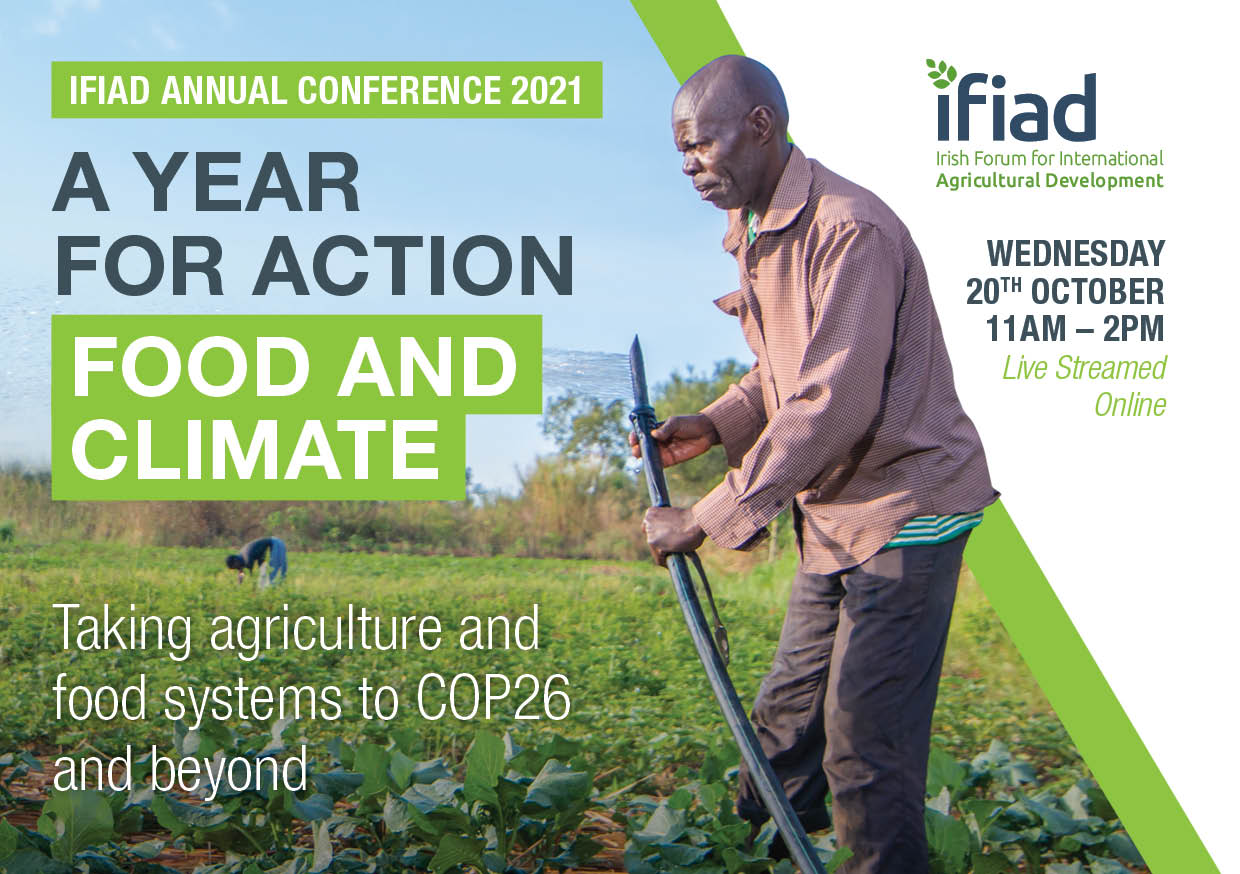
This past Wednesday marked the occasion of the annual IFIAD conference which discusses recent development in the Agri food sector both at home and abroad. This was my first time attending this conference and I was very impressed with the lignup of speakers assembled. Among those was Pippa Hackett the Irish Minister for Land Use and Biodiversity who gave the opening speach for the conference.
This years conference identified some key issues which have to be addressed and voiced to world leaders at the upcoming COP26 conference of states. The science is now clear with 99% confidence that climate change is being driven by human activity (Lynas, 2021). Humanity is standing on the precipise of runaway climate change and the minutes are counting down to the point of no return.
Humanity must drastically reduce its emissions and change the way society functions and peoples lifestyles must change. However, outside the energy sector the elephant in the room no one wants to discuss is our food systems and the precariousnes of the global food chains we rely on to provide food on our tables from all seasons year round. At the IFIAD conference it was pointed out that this years COP26 must provide the stage for a conversation on how humanity plans to address food security to prepare it for the end of the decade and how we can rapidly adapt to a new method of Climate Smart Agriculture that is both productive and non industrialy intensive on our planet. These are critical issues but not enough people are aware of the issue and progress on solutions is slow.
“My worry is wether the Food systems summit was tranformative enough, countries tend to shy away from political issues and governments like to take the easy route of depending on technological advancements” this was the view expressed by Director of Strategy and advocacy for learning at Concern World Wide, Connell Foley. I agree with his sentaments that the world seems all to sure in techonology being the answer to our problems and hanging on the whim that techonological innovations will save us from Climate disaster. This view will lead us no where and thats two fold for the global Agri food sector where countries like Argentina and Brazil want to lobby the publishing of a recent report to dilute the evidence that eating less meat is necessary to reduce our emissions.
The IFIAD conference also discussed certain polarisations and lack of consensus at the food systems summit. Some countries and actors at the summit held dialouges but it was unclear where they went and further alienated groups by only involving techocrats. The case of polarisation was further carried by Tom Arnold – the Irish governments special envoy for food systems. Who observed that some countries even refused to attend the summit which poses the question how do we carry the partnerships and promises made at the food systems summit forward and involve those who did not attend?
This leads us to one of the biggest concerns raise at the conference, the issue of trust. How are we to trust politicians will do what is necessary or that this COP will be any different from the previous 25. When politicians have broken peoples trust so many times and failed to take responsibilty for the situation we are in how are we to expect anything different going forward? The panel of IFIAD speakers came to a consensus that the only way to repair this trust is through involving ground level actors, farmers, teachers, the youth these are the groups that should be front stage at the COP26 conference and every event. Letting these people be heard and involving them in decisions at every level is the only solution moving forward.
The IFIAD conference was refreshing from my perspective as it was good to see professionals who deeply care and work for the good of the Agri food system point out the shortcomings and realities of events like the food systems summit, which when observed objectively seems like it has the solution to all our problems and will fix the mess we are in. To add to the discussion some issues I would have liked to see discussed are the neccessity for legaly binding targets at conferences like COP and I believe there is a need for conferences and panels to include people from opposing sides as this way each side is forced to communicate their grieviances and is put in a position where they have to answer eachother or their silence answers for them. I say this as it was the case with Lauren MacDonald a climate activist who last week at the TED countdown summit in Edinburgh called out Shell CEO Ben Van Beurden on his blatant greenwashing when he trumpeted about Shells efforts to address cliamte change, and rightly told him “we will never forget what he has done and should be ashamed of himself”.
I hope you enjoy my views and opinions on the IFIAD conference and recent developments leading up to COP26 and hope to see you soon for more discussions!
SOURCES
Lynas, M., Houlton, B. Z., & Perry, S. (2021). Greater than 99% consensus on human caused climate change in the peer-reviewed scientific literature. Environmental Research Letters, 16(11), 114005. https://doi.org/10.1088/1748-9326/ac2966